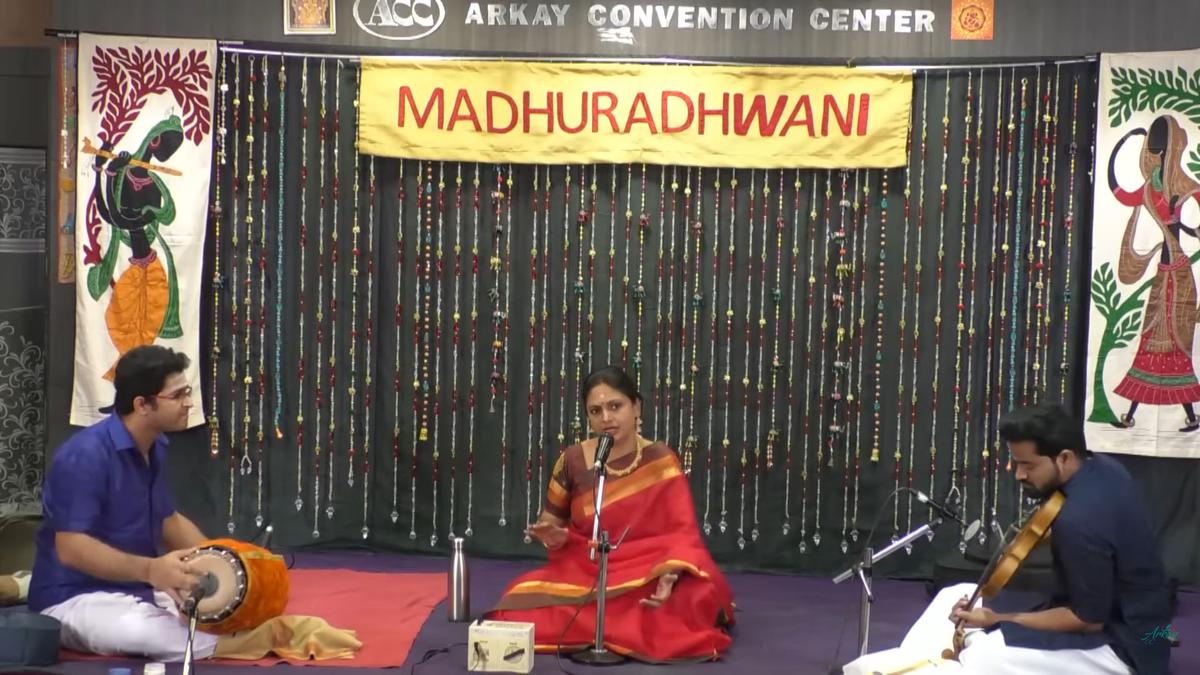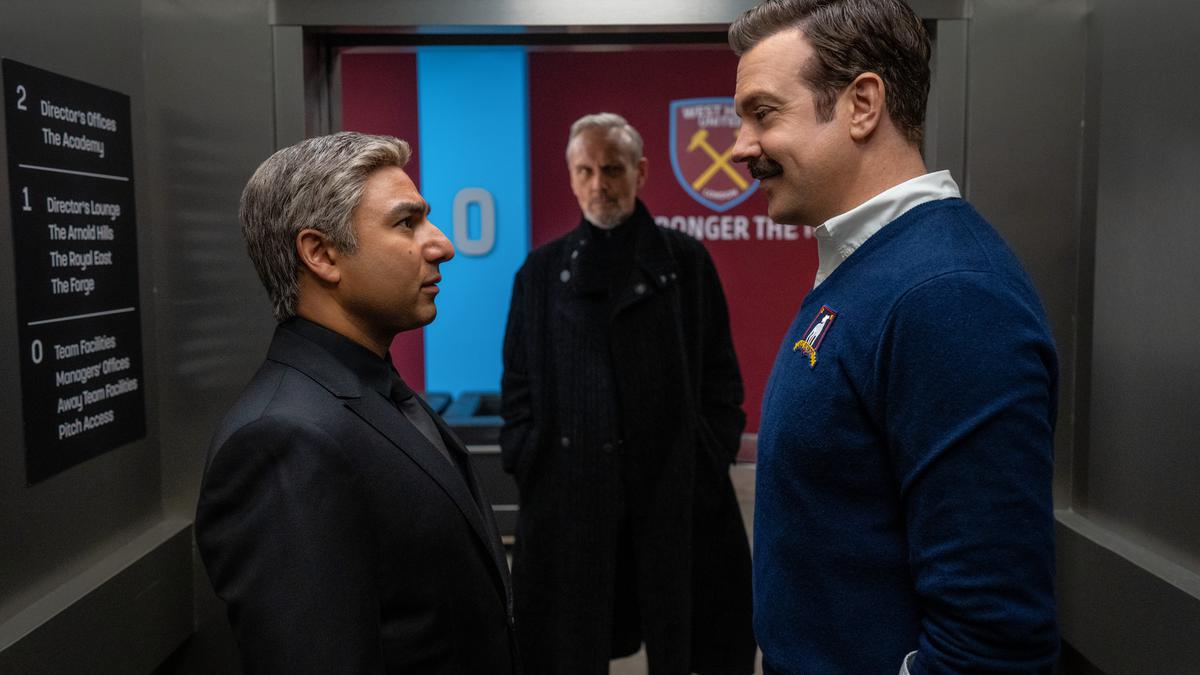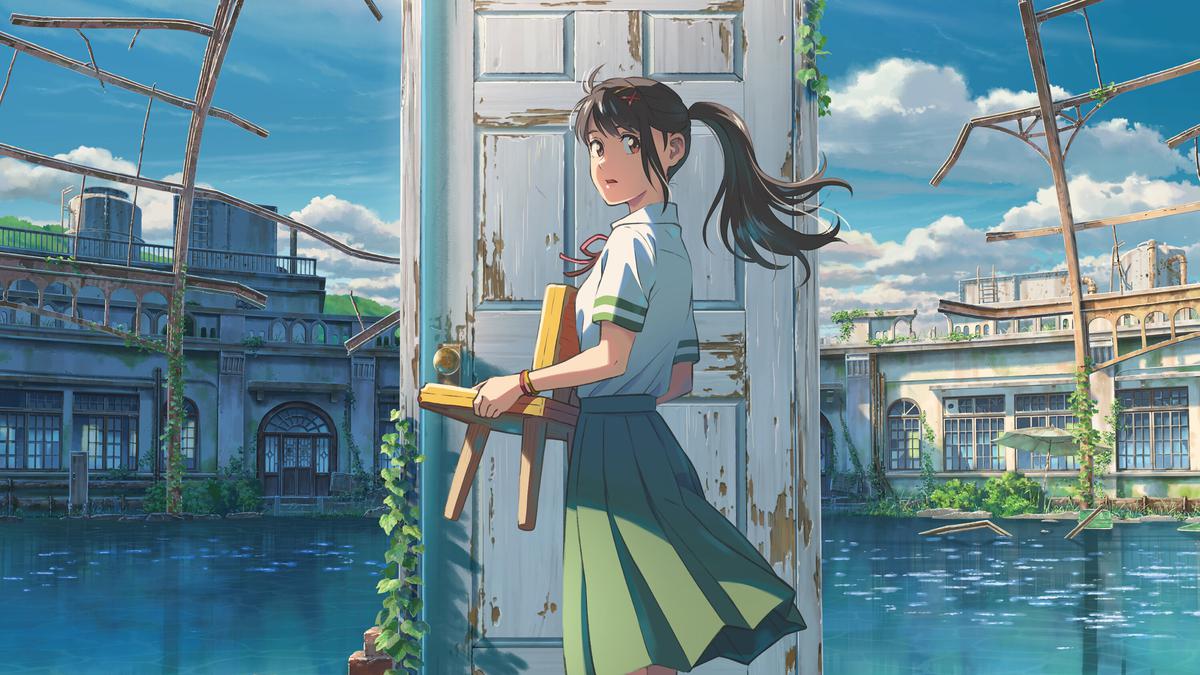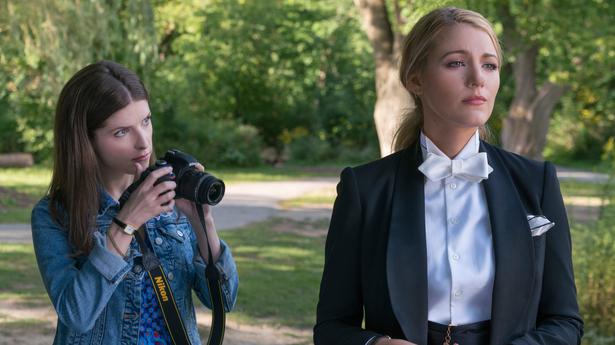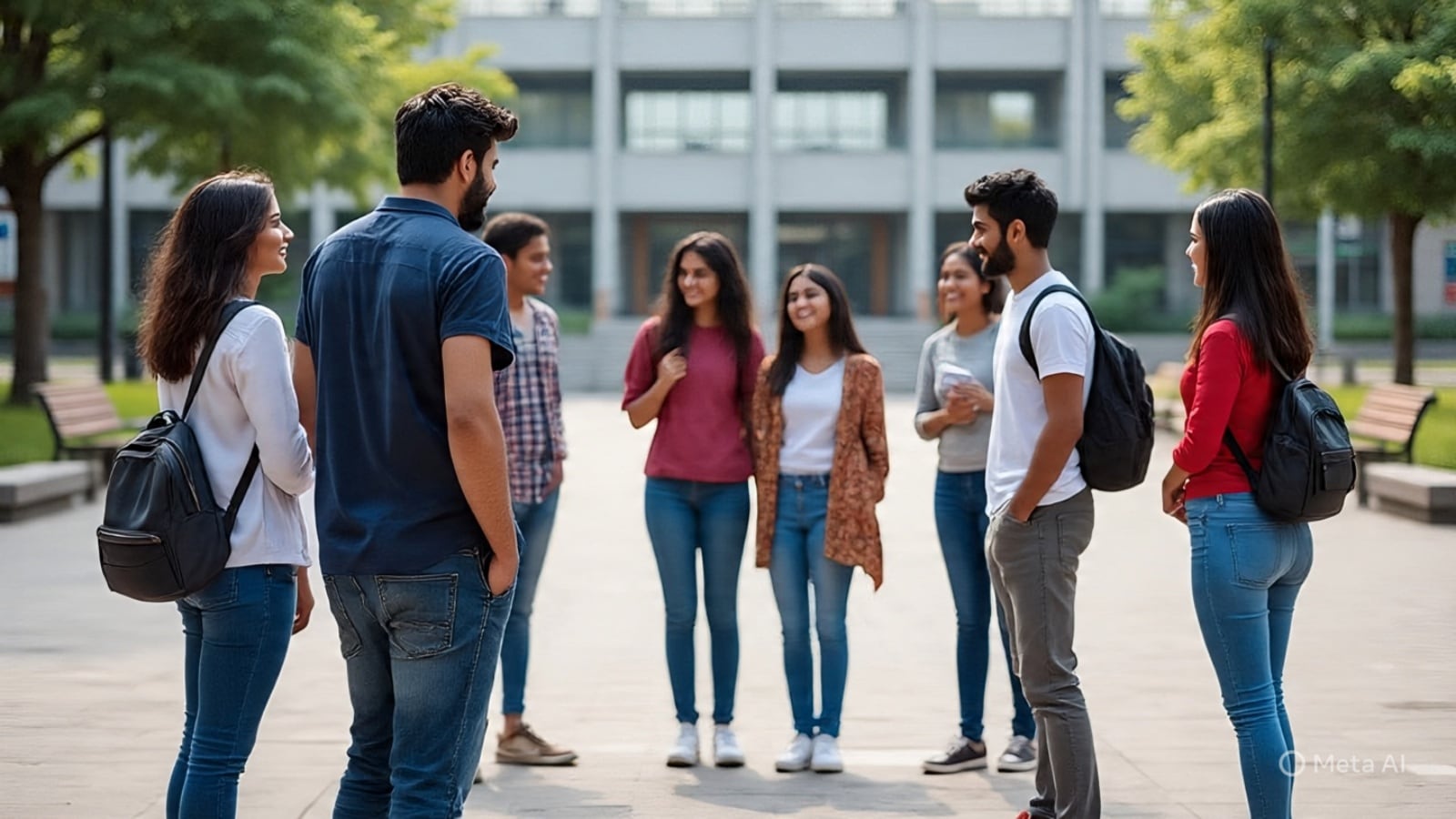Bhavya Hari with Madan Mohan (violin), and Sunaada Krishna (mridangam).
| Photo Credit: Special Arrangement
For Arkay Convention Centre’s 12th anniversary series, Bhavya Hari showcased the full range of her scintillating talents in her evening concert. She owes it primarily to the her guru, mentor and mother T.V. Sundaravalli.
Bhavya had her advanced training under vidushi Sulochana Pattabhiraman, Vidushi Padma Chandilyan and for some time from S. Sowmya.
The young vocalist brought immense richness to the listening experience — in terms of melodic expressions and intellectual sophistication. Such a sincere endeavour was ably supported by the competent violin accompaniment of Madan Mohan, a student of R.K. Shriram Kumar, and on the mridangam by Sunaada Krishna, who is undergoing advanced training under Mannargudi Easwaran.
Impressive alapana
The main kriti that Bhavya took up for her recital was the magnum opus by Muthuswami Dikshitar, ‘Akshaya linga vibho’, in a majestic Sankarabharanam (mishra chapu), decorated with an impressive raga alapana and niraval at the charanam, ‘Badari vana moola naayika sametha’. Her appealing melody lent richness to this kriti about the shrine of Lord Shiva at Keevalur, situated between Tiruvarur and Nagapattinam, where the sacred tree is Badari, Ilanthai in Tamil.
Incidentally, this temple has a prominent Bhadrakaali shrine. Another aspect of this kriti is that it is in the second vibhakti. It is no wonder, Bhavya allotted almost half of the duration of her two-hour recital to the composition. On the violin Madan Mohan gave excellent response at the raga elucidation, niraval and kalpanaswaras. On the mridangam, Sunaada Krishna offered a fitting finale in his splendid thani.
Earlier, Bhavya set the pace for the recital with Patnam Subramania Iyer’s Thodi varnam ‘Era naapai’. A glorious mohanakalyani alapana preceded Harikesanallur Muthaiah Bhagavatar’s ‘Siddhi vinayakam seveham’, embellished beautifully with a swaraprastara at the pallavi.
‘Tulasi dalamula’, a Tyagaraja composition in Mayamalavagowla (Rupakam) had an elaborate swaraprastara. Another Tyagaraja composition, ‘Baale baalendu bhooshani’ in Ritigowlai, on Sri Dharmasamvardhini of Tiruvaiyaru commenced with a lovely alapana. The icing on the cake was the swaraprastara.
This kriti was popularised by Dr. S. Ramanathan, and Bhavya took up one of his own compositions, ‘Vaa velava tamiyenai’ in Sivaranjani (Desadi tala), which instantly brought about a profound devotional mood.
Steeped in devotion
Continuing in the same devotional spirit, Bhavya rendered two viruthams from Kandhar Anubhoothi — one in Dwijavanti and the other in Sumanesa Ranjani. This was followed by the Thiruppugazh verse, ‘Tharakasuran sarinthu’, in a rhythmic tisra gathi. Little wonder, since her mother was devoted to the Thiruppugazh all her life, and her father, Valayapettai R. Krishnan, who extensively researched the Thiruppugazh, and belongs to the lineage of Syama Sastri.
Bhavya Hari wound up her concert with a Narayana Tirtha Tarangam, ‘Govardhana giridhara’, in Shuddha Sarang.
The Chennai-based reviewer writes on Carnatic music.


